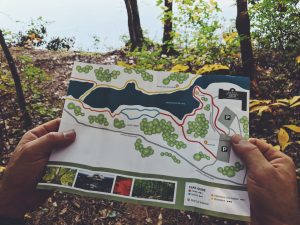Therapist Consultation & Training
Your trail guide on the path to exceptional clinical work.
 True confession: I never wanted to be a couple therapist. Couples scared the crap out of me. Then, in 2012 a friend took me to a training with Stan Tatkin. I was hooked, but still intimidated. It took me another two years of training with Stan, before I found the courage to start seeing couples.
True confession: I never wanted to be a couple therapist. Couples scared the crap out of me. Then, in 2012 a friend took me to a training with Stan Tatkin. I was hooked, but still intimidated. It took me another two years of training with Stan, before I found the courage to start seeing couples.
I've experienced firsthand the struggle of learning a complex model and trying to incorporate theory, practice, and skills into something that resembles what I learned from Stan. For most therapists, proficiency and comfort in PACT require a change in thinking. It takes time and intention to consolidate PACT skills and knowledge so that responding from the PACT perspective becomes second nature.
My passion for learning fuels my growth as a therapist. My strength lies in guiding others to find their own voice and way of being as a PACT therapist. I offer individual and group case consultation and clinical supervision to PACT therapists at any level of training, and training and consultation to both PACT and non-PACT therapists working with high-trauma couples. I can help you incorporate what you already know and use from other models into a frame that has fidelity to the PACT model. Together, we can identify your learning edge and how to approach the material in a way that works best for you.
Case Consultation vs Advanced Clinical Supervision
 Case Consultation
Case Consultation
Case Consultation involves clinical analysis of a particular case or cases from a specific perspective. Consultees identify specific questions or challenges related to a case. Together, we explore the cases, looking at them through a PACT therapy lens and identifying ways to approach the specific problems and challenges through the PACT paradigm and with PACT skills. I'm available for ongoing case consultation or on an as-needed basis.
Advanced Clinical Supervision
If you're a therapist who has been licensed and practicing independently for several (or many) years, the idea of receiving clinical supervision at this point in your career may seem odd. In my experience, receiving advanced supervision is unparalleled in taking my work to the next level. I continue to receive regular individual and group supervision from advanced practitioners and have been in a weekly peer supervision group since 2019.
More structured and formal than case consultation, advanced clinical supervision is a process of professional support, reflection, and learning that contributes to your individual development and growth as a therapist. Supervision takes a deeper dive into your individual learning edge. We create specific learning goals and a path to achieve them. In addition to looking at cases, supervision may include skill-building exercises, deliberate practice techniques, and exploring transference and countertransference.
Deliberate Practice Coaching
 Deliberate practice (DP) coaching differs from both case consultation and clinical supervision. In DP coaching, we focus less on specific cases and more on specific learning goals. It includes an individualized plan for skill acquisition, repeated skill rehearsal, and successive refinement of ongoing efforts to better your performance. In DP, we integrate learning into the overall process, identifying the learning need, breaking the process down into parts, and testing new strategies at each step along the way.
Deliberate practice (DP) coaching differs from both case consultation and clinical supervision. In DP coaching, we focus less on specific cases and more on specific learning goals. It includes an individualized plan for skill acquisition, repeated skill rehearsal, and successive refinement of ongoing efforts to better your performance. In DP, we integrate learning into the overall process, identifying the learning need, breaking the process down into parts, and testing new strategies at each step along the way.
